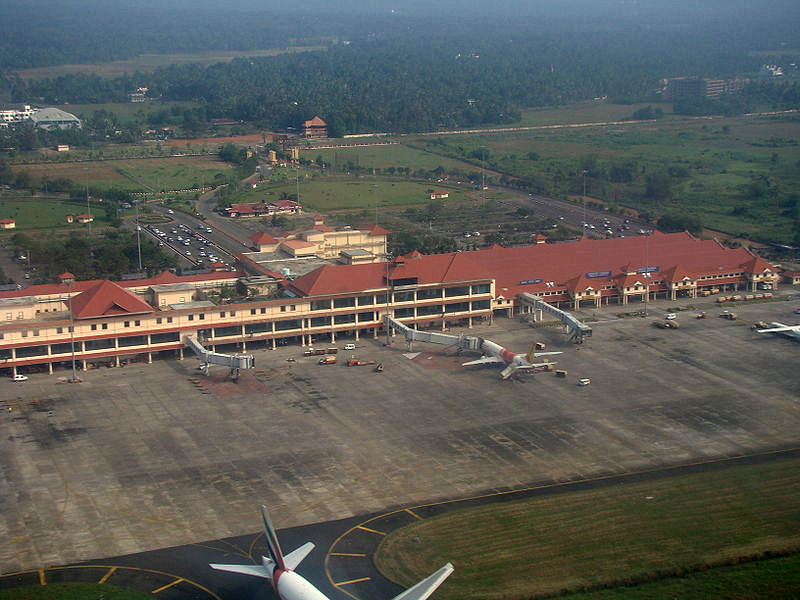Indian airport began to supply electricity to the grid

Representatives of the Cochin International Airport in India, who switched to solar energy a year ago, report that the organization not only completely abandoned the state grid and stopped paying for electricity, but also began to supply energy to the grid . The transition to renewable energy initiative has finally begun to pay off.
For the first time, the idea of switching to autonomous energy supply came to airport managers three years ago. They began to place solar panels gradually - first on the roof of the passenger terminal, then on the roofs of the hangars and adjacent territories.
Inspired by the successful introduction of alternative energy sources, the airport management ordered from the German company Bosch the construction of a whole field of solar panels on empty land near the airport. The project cost $ 9.3 million. Management believes that this money will pay off in 6 years due to the fact that you no longer need to pay electricity bills. And for 25 years of service panels, according to approximate calculations, 300 thousand tons of carbon dioxide, contributing to the greenhouse effect, will not be emitted into the atmosphere.
')
In August 2015, a system with a capacity of about 50 MW was commissioned . Due to its proximity to the equator and the fact that India has about 300 sunny days a year, the system coped with the load and covered the daily needs of the seventh busiest airport in India.
Now the project can pay off even faster, because the airport delivers excess energy back to the network, for the needs of the population. Even the largest cities of India are constantly faced with a shortage of electricity and periodic outages. The airport management is already planning to expand the solar power plant in connection with the construction of a new, enlarged terminal.
The management of an even more busy airport, Kolkata International Airport, is already looking at the success of colleagues, and also plans to build a solar power plant for its own needs.
The Indian Aviation Minister, who visited the airport in Cochin in January, said that the government had already demanded that all airports in the country at least partially use solar electricity for their needs.
The cost of energy derived from the sun in India falls quite rapidly, and now only 15% more expensive than energy from burning coal . According to energy forecasts, by 2020 this energy will become cheaper than usual.
Last summer, it was announced that the leadership of the Indian Railways, as an experiment, installs solar panels on the roofs of freight trains .
Source: https://habr.com/ru/post/391977/
All Articles